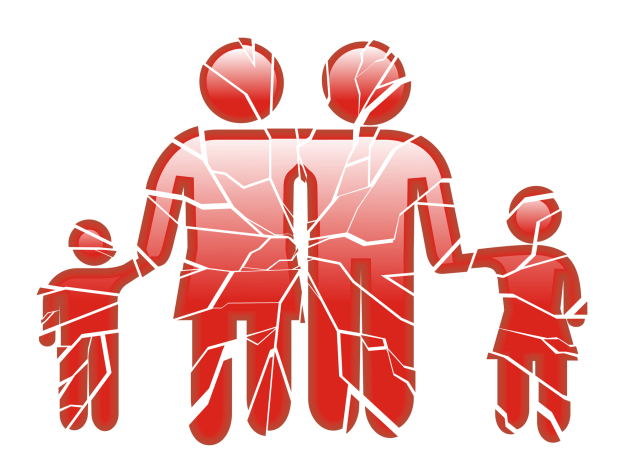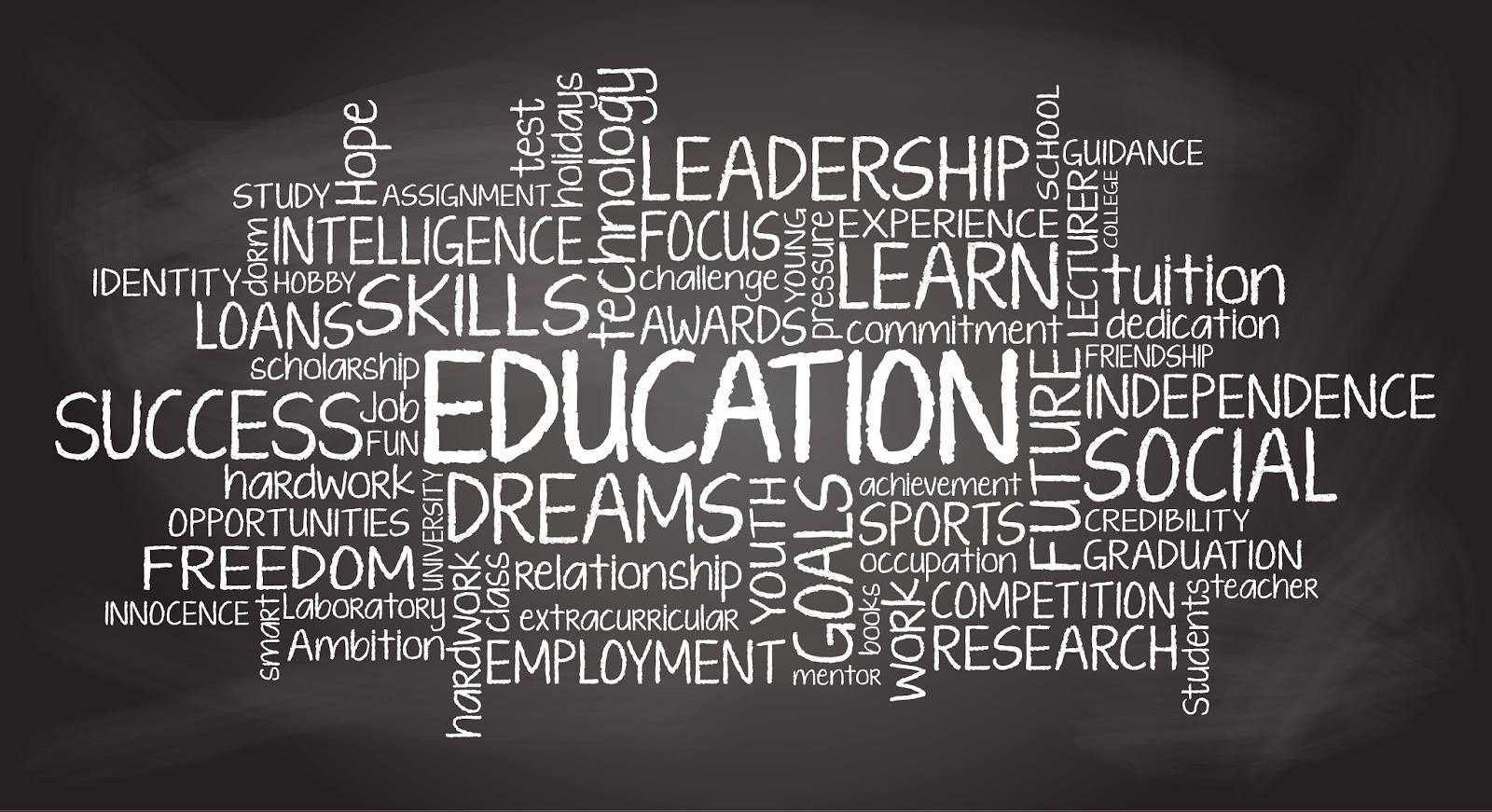Social media as the engine of revolution
The concept of social media started when humans begin to communicate. They express their ideas in cave paintings and ancient stone scripts.
The Plight of Modern Family; Gender Equality and contemporary changes
The human society is comprised of men and women. The society has given specific roles based on the gender which has now changed dramatically.
Sri Lankan Education System Needs an Overhaul
Education is a basic need for a human being. The right to education is recognized in the Universal Declaration of Human Rights. We get education until we die.
Climate Change and the Future of Mankind
Since the beginning of mankind, humans tried to master the environment around them. Now thousands of years later in the 21st century it seems that the humans have finally conquered the Mother Nature
Online Life; Is it safe?
Information and communication technology helps man to connect to one another in every aspect of life today from financial transactions to meeting friends. This interlinked world may appear to be fast and convenient but have we ever wondered whether our privacy and safety is ensured in it?
Friday, December 26, 2014
Presidential Election 2015; The Political Gamble
Monday, December 8, 2014
The Lost Opportunity to Tame the Tyrant; 17th Amendment to the Constitution of Sri Lanka
|
President’s Side
|
Others
|
|
PM
|
Opposition Leader
|
|
Speaker
|
Minority party nominee
|
|
One nominated member by the President
|
5 X member nominated by both PM and Opposition leader
|
|
3
|
7
|
- · The election commission
- · The public service commission
- · The national police commission
- · The human rights commission
- · Bribery commission
- · Finance commission
- · Delimitation commission
- · Chief Justice and the Judges of the Supreme Court
- · The President and the Judges of the Court of Appeal
- · Members of the Judicial Service Commission except for the chairman
- · The Attorney General
- · The Auditor General
- · The Inspector General of Police
- · Ombudsman
- · The Secretary General of Parliament
Wednesday, December 3, 2014
Presidential Election 2015: The Question of Being Elected for the Third Term
Wednesday, July 9, 2014
Merits and Demerits of the Executive Presidency in Sri Lanka
Friday, April 18, 2014
Popular Schools Phenomenon in Sri Lanka
Saturday, April 5, 2014
Western and Southern Provincial Council Election Aftermath
Friday, March 28, 2014
Election Special : Sri Lankan Politics and the Guide to Choose Candidates
Wednesday, March 5, 2014
Battle in Geneva; Sri Lanka at the UNHRC Session
The Geneva season has begun. Every March for the last 2 years had been a busy period for Sri Lankan diplomats and politicians. At the United Nations Human Rights Council (UNHRC), resolutions against Sri Lanka were brought up and voted. Now for the 3rd time, another resolution has been drafted. Voting has yet to be called. Both the Sri Lankan government and western countries backed up by United States is preparing for a fierce battle at Geneva. Especially the government has said that they are confident in getting the support of the majority of UNHRC countries to vote against the resolution. Today, Sri Lankan foreign minister Professor G.L.Peiris addressed the UNHRC session rejected the resolution as well as the high commissioner's report stating that it is fundamentally flawed.
After the 30 year bloody civil war was ended in 2009, the international community came up with doubts to whether the conduct of the Sri Lankan army in the last months of war is complying with the international humanitarian law. Although, Sri Lankan government had labeled the operation as a humanitarian mission, most of the international community was skeptical about this. In the eve of war in 2009, United Nations raised questions about the number of civilian deaths which was suspected to be nearly 40000. It had raised concerns about the post war situation in Sri Lanka on violation of human rights, execution of POWs and deliberate attacks on civilian targets.
A report was submitted to the UN called Darusman report pointed out allegations of human rights if proven, raises war crimes and crimes against humanity accusations against Sri Lankan military and leaders. Sri Lankan government had rejected the Darusman report. [1] They implemented its own inquiry called Lessions Learned and Reconciliation Committee (LLRC) in which the LTTE was blamed for carrying out almost all of the atrocities however it has accepted that there were some "isolated" incidents involving armed forces. LLRC recommendations were made public in 31st March 2011.
Almost an year had passed from LLRC report publication when the United States raised alarm on Sri Lankan government failure to implement LLRC recommendations. Since LLRC being an internal investigation and one being directly ordered by the President himself, the Sri Lankan government must have been responsible for its immediate implementation. At the UNHRC session, government has insisted saying "we need to be given time to further consolidate the clear process that has been achieved in a short period of 3 years". It seemed to be that the Government is buying time.
A second resolution was backed up by the western powers in 2013. It urged Sri Lanka to set up a truth seeking commission but it doesn't explicitly suggested an international inquiry. Now for the 3rd time, another resolution has brought up before the council. Although it acknowledge the progress made on implementing the some recommendations made by LLRC, it has accused the government again for failing to ensure credible investigation in to past violation of human rights. It also focuses on the attacks on religious minorities, lawyers, human rights activists and journalists. It recommends to establish an independent international inquiry if domestic mechanisms failed.
UNHRC has 47 seats which are distributed among United Nations regional groups for a three year term. Lets look at the voting outcome for the last 2 resolutions[2]
| YEAR | VOTED IN FAVOR OF RESOLUTION | VOTED AGAINST RESOLUTION | ABSTAINED |
| 2012 | 1. Benin
2. Cameron 3. Libya 4. Mauritius 5. Nigeria
6. India
7. Chile8. Costa Rica 9. Guatemala 10. Peru 11. Mexico
12. Uruguay
13. Austria14. Belgium 15. Norway 16. Italy 17. Spain 18. Switzerland
19. United States
20. Czech Republic21. Poland 22. Hungary 23. Moldova 24. Romania |
1. Congo
2. Mauritiana 3. Uganda 4. Bangladesh 5. China 6. Indonesia 7. Kuwait 8. Maldives 9. Philippines 10. Qatar 11. Saudi Arabia 12. Thailand 13. Cuba 14. Ecuador 15. Russia |
1. Angola
2. Botswana 3. Burkina Faso 4. Djibuti 5. Senegal 6. Jordan 7. Krygystan 8. Malaysia |
| 2013 | 1. Benin,
2. the Ivory Coast, 3. Libya, 4. Sierra Leone, 5. India, 6. Korea, 7. Argentina, 8. Brazil, 9. Chile, 10. Costa Rica, 11. Guatemala, 12. Peru, 13. Austria, 14. Germany, 15. Ireland, 16. Italy, 17. Spain, 18. Switzerland, 19. USA, 20. Czech Republic, 21. Estonia, 22. Montenegro, 23. Poland, 24. Romania, 25. Moldova. |
1. Venezuela,
2. Ecuador, 3. UAE, 4. Thailand, 5. Qatar, 6. Philippines 7. Pakistan, 8. Maldives, 9. Kuwait, 10. Indonesia, 11. Uganda, 12. Mauritania, 13. Congo (Rep not DR) |
1. Ethiopia,
2. Angola, 3. Botswana, 4. Burkina Faso, 5. Kenya, 6. Japan, 7. Kazakhstan, 8. Malaysia. |
India despite of being our neighbor voted against Sri Lanka in the past two resolutions. It may be because of the pressure from Tamil Nadu. At the 2013 resolution, Japan's move to abstain from voting is a clear sign of USA's power to persuade her allies to go against Sri Lanka (at least by retaining from voting). Whole Europe (Eastern and Western alike), most of the Latin American countries and some Asian countries have voted for the resolution. The only allies Sri Lanka had were a handful of South East Asian countries and Muslim nations.
Government has long been preparing for the worse in this year's resolution. Powerful countries such as Russia and China have extended their support to Sri Lanka. Government was on a lobbying campaign across the world persuading Latin American, African and Asian nations to vote against the resolution. There are talks about a counter resolution by some countries in favor of Sri Lanka. Today (05-03-2014) Sri Lankan delegate, Professor G.L.Peiris slammed the High Commissioner's report by telling that the report's recommendations are "arbitrary, intrusive and of a political nature, and are not placed within the ambit of the LLRC, as demonstrated by the call to establish an international inquiry mechanism."
In terms of voting, there may not be a difference from the last two resolutions because East and West European block and countries under American influence. Surely India will vote for the resolution but Sri Lanka may have a chance of getting the support from Japan, South Africa and some countries who abstained in 2013 session. Even that will not be enough for the resolution to be rejected.
Sri Lankan government doesn't really care about the resolution. They are in a habit of ignoring international pressure as long as no direct economic impact such as sanctions are implemented. Instead of complying with the recommendations, the government is using UNHRC session as a means to gather votes in the upcoming provincial council election.
Now almost two years has passed but the reconciliation process is still not up to standards. There are handful of silver strokes in this gloomy sky such as the infrastructure development in North and East but they alone can't turn the tables in favor of Sri Lanka . Failing to implement a substantial amount of recommendation on time may show the grim reality that the government has no real interest in reconciliation and accountability even to their own investigations.
Whether we like it or not, we need a long term plan for reconciliation. First an independent local investigation is needed at least to show the world we are doing something. The government or the armed forces no need to be afraid because they haven't committed any war crimes. Almost all the servicemen in the armed forces and police did their job with utmost professionalism so no harm will be done to the armed forces if perpetrators of some isolated incidents are brought to justice.
Economic development is merely not enough. Even economic development without empowering people's lives is useless. Growing economy should bring benefits directly to the masses. Economic development is a great way to build peace and prosperity.
Finally political system need to change. Everyone regardless of the race and religion need to get involved in political system. Strengthening provincial councils or other opportunities should be promoted. The government needs to start genuinely talking to the minority politicians and make room for a peaceful solution. Both the minorities and the majority may have compromises to make but they should be done without hesitation by setting aside the Ego for a while.
This session in Geneva will be a golden opportunity to steer Sri Lanka towards long term peace, prosperity and reconciliation. Are our leaders going to take this opportunity or simply reverting to back to the same routine after this resolution as they have done in the previous two resolutions ?
[1]http://www.mea.gov.lk/index.php?option=com_content&task=view&id=2746&Itemid=75
[2]http://www.lankaweb.com/news/items/2014/03/04/sri-lanka-scores-preliminary-moral-victory-at-unhrc-2014/.
.
































